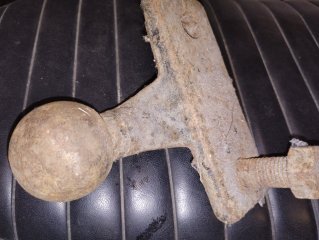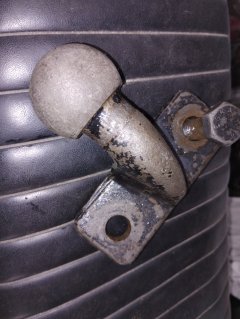Phosphoric acid is the rust remover and converter, citric acid removes the rust but does not convert.
Phosphoric Acid:
Strong and fast-acting: Phosphoric acid is known for its ability to quickly and effectively convert rust into a protective layer.
Creates a protective layer: The iron phosphate layer it forms can help prevent future rusting.
Potent: It's a more powerful rust remover than citric acid, especially in higher concentrations.
Industrial applications: It's commonly used in industrial rust removers and converters.
Citric Acid:
Weaker and slower:
Citric acid is a weaker acid than phosphoric acid and may require more time and higher temperatures for effective rust removal.
As the conversion process can take place before all the rust layers are removed, the most effective method is first to use a rust remover like citric acid until all the rust is removed and then use the phosphoric acid as it will convert the top steel surface to iron phosphate. With no rust under it to then undermine the iron phosphate then it will a lot more effective.
If after the citric acid treatment you get a rust coloured bloom then the phosphoric acid will still convert this thin layer to iron phosphate and be effective.


